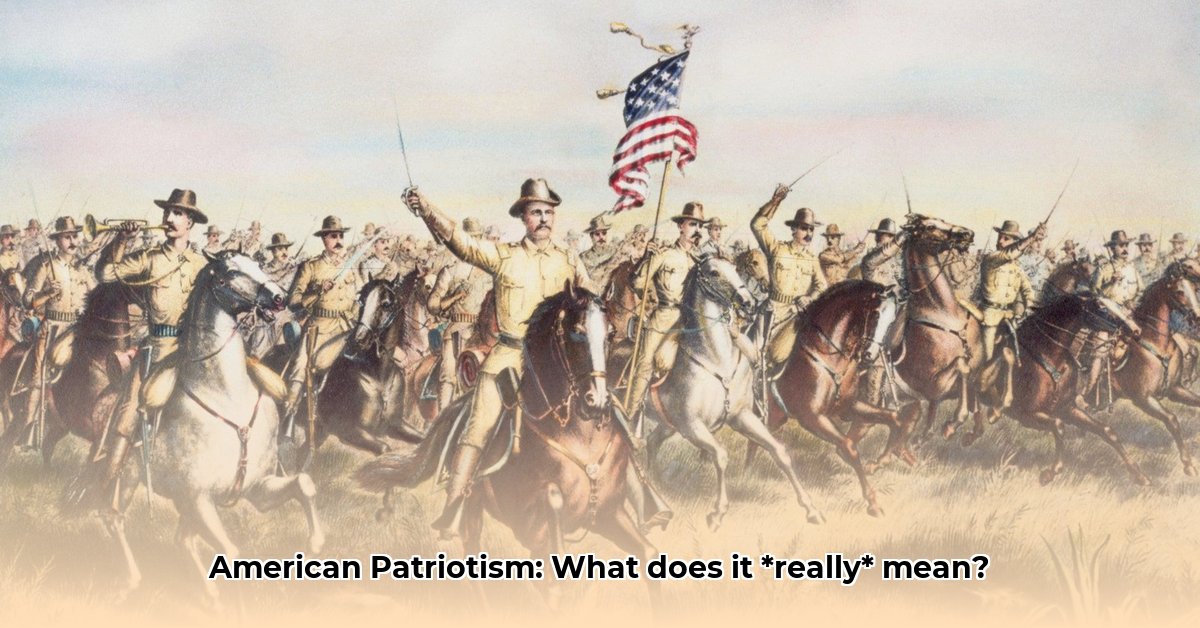What does it truly mean to be American? The concept goes beyond simple allegiance or reciting the Pledge of Allegiance. This article explores the multifaceted narrative of American patriotism, tracing its evolution from the nation’s founding to our contemporary understanding. We will examine pivotal historical moments and a spectrum of diverse viewpoints, revealing the inherent disagreements and contradictions involved in defining Americanism. For a deeper dive into American cultural identity, see this insightful article.
The Evolving Landscape of American Spirit and Patriotism
The American spirit is a complex and often debated idea, lacking a single, universally accepted definition. It is a constantly evolving concept, shaped by critical historical events, diverse perspectives, and the ongoing dynamics of societal change. How does national identity shape global perceptions and influence international relations?
The Revolutionary Spark: Early Seeds of Patriotism
In the late 1700s, American colonists, fueled by grievances against British rule, fought for their freedom and self-governance. Patrick Henry’s electrifying declaration, “Give me liberty, or give me death!” perfectly encapsulates the rebellious energy that ignited the American Revolution. In this context, patriotism was inextricably linked to resisting tyranny and asserting the rights of the individual. However, it’s crucial to remember that colonists were far from united, with many remaining loyal to the British crown, highlighting the complexities and divisions present even at the nation’s inception.
A Nation Divided: The Civil War’s Enduring Impact on Patriotism
The 1860s witnessed the eruption of the Civil War, pitting the North against the South in a brutal conflict that fundamentally challenged the very notion of American patriotism. Could a nation so deeply divided truly share a common identity? With millions dead and the nation irrevocably scarred, the meaning of patriotism was indelibly reshaped. It became inextricably linked with themes of reconciliation, overcoming profound conflict, and the arduous process of rebuilding a fractured union. The very definition of “being American” transformed into a far more complex and contested concept.
The Melting Pot: Immigration and the Ever-Changing Face of American Identity
Waves of immigration have dramatically reshaped the American landscape, injecting a vibrant mix of diverse cultures, traditions, and perspectives into the evolving national identity. Has this influx of diversity strengthened the national character, enriching it with a broader tapestry of experiences and viewpoints? Or has it fueled societal tensions, exacerbating existing divisions and creating new challenges to national cohesion? It is a complex, ongoing narrative involving cultural assimilation, integration, and the constant renegotiation of what it means to be an American, further influencing interpretations of national identity.
World War II: A Defining Moment of Shared Sacrifice and Collective Identity
During the tumultuous years of World War II, Americans found a rare and powerful common ground in their united fight against a shared enemy. The collective experience of sacrifice, service, and unwavering dedication to the war effort fostered an unprecedented sense of national unity, temporarily reaffirming a cohesive American spirit. However, it’s essential to acknowledge that even amidst this unity, inequalities persisted, with the burdens and sacrifices of war often unequally shared across different segments of the population. The hard-won victory came at a tremendous cost, starkly highlighting both the immense power and underlying fragility of shared experiences in shaping national identity. What lasting role did wartime propaganda play in shaping perceptions of patriotism and solidifying national resolve?
The Cold War and the Red Scare: Navigating Fear, Loyalty, and the Limits of Freedom
The intense Cold War era saw the rise of a potent intertwining of anti-communism with definitions of national loyalty. The McCarthy era, with its widespread accusations, blacklists, and climate of fear, cast a long and troubling shadow on American society, targeting individuals for their political beliefs and chilling the exercise of free speech. This period showcased a darker side of patriotism, one where conformity and suspicion often overshadowed fundamental freedoms and due process.
The Civil Rights Movement: A Moral Reckoning and the Pursuit of Equality
The Civil Rights Movement of the mid-20th century mounted a powerful challenge to the very foundations of what it meant to be an American, exposing the deep-seated hypocrisy inherent in preaching equality while simultaneously practicing racial segregation and discrimination. This watershed moment forced a painful reckoning with the persistent gap between the nation’s lofty ideals and the harsh realities experienced by millions of its citizens. True patriotism, the movement argued, demanded confronting these flaws head-on and actively striving for justice and equality for all. The courageous fight for civil rights became, in essence, a fight for a more authentic and inclusive American identity.
Modern Interpretations: A Symphony of Many Voices and Conflicting Visions
In contemporary society, American patriotism is a complex and multifaceted idea, subject to a wide range of interpretations and perspectives. The nation is increasingly diverse, with deep-seated disagreements over fundamental social issues, the appropriate role of government, and the very direction in which the country should be heading. In this environment, there is no longer a universally accepted definition of patriotism. Indeed, some argue that this very diversity of viewpoints and experiences is the essence of the American spirit itself.
Looking Ahead: Charting the Future of Patriotism and National Identity
The American spirit and the meaning of patriotism is constantly being redefined. Understanding this ongoing evolution requires embracing diverse perspectives, grappling honestly with complex historical narratives, and acknowledging the persistent tensions between the nation’s stated ideals and its lived realities. The future of American patriotism depends on fostering open dialogue, finding common ground amidst deep divisions, and remaining steadfast in honoring the core values that have, at their best, defined the American experiment. What core tenets will future generations embrace and define as the essence of American patriotism?
Key Eras and Their Impacts: A Summary
| Era | Key Characteristics | Impact on American Patriotism |
|---|---|---|
| Revolution | Fight for independence; emphasis on liberty, self-governance, and individual rights | Founding ideals established; emphasis on individual rights and limited government; early divisions between patriots and loyalists. |
| Civil War | National division; fundamental conflict over slavery and states’ rights; competing visions of nationhood | Fractured national identity; redefined patriotism in terms of union, freedom, and equality; Reconstruction era aimed to rebuild the nation and address racial injustice. |
| Immigration | Diverse cultural contributions; the “melting pot” ideal; challenges of assimilation and integration | Ongoing debates on assimilation and multiculturalism; evolving understanding of national identity; tensions between nativism and inclusion. |
| World War II | Shared sacrifice; national unity during wartime; the fight against fascism and totalitarianism | Renewed sense of unity and purpose; temporary suppression of internal divisions; the rise of American global power and responsibility. |
| Cold War/Red Scare | Anti-communist sentiment; suppression of dissent; the threat of nuclear war | Fear, loyalty oaths, and limits on freedoms; the erosion of civil liberties; a focus on national security and ideological conformity. |
| Civil Rights Movement | Fight for equality; confronting racial injustice; challenging systemic discrimination | Re-evaluation of national identity; a focus on inclusion, justice, and equality; landmark legislation and social change; ongoing struggles for racial equality. |
| Modern Era | Increasing diversity; societal divisions and debates; globalization and technological change | Multifaceted and contested interpretations of American identity are now prevalent; political polarization; debates over national values and priorities; the impact of social media and technology. |
Reconciling Diverse Interpretations of American Patriotism
Key Takeaways:
- American patriotism is a dynamic concept, constantly evolving in response to diverse experiences and significant historical events.
- Grasping the full meaning of patriotism necessitates acknowledging its many dimensions, ranging from fervent nationalism to critical engagement with societal challenges.
- Bridging divergent viewpoints requires open dialogue, empathy, and a genuine willingness to learn from a multitude of perspectives.
- Comprehensive education can promote a deeper understanding of the multifaceted nature of patriotism within the broader context of American history.
A Nation Divided, A Nation United? Examining the Dichotomy of American Identity
What does it truly mean to be a patriot in a diverse and often divided nation? Is it a matter of blind allegiance to national symbols and institutions, or does it require critical engagement with societal problems and a relentless pursuit of justice and equality for all? The answer, as is often the case, is complex and multifaceted. American patriotism, deeply interwoven with national identity, is not a monolithic concept but rather a tapestry woven from diverse threads and often contradictory viewpoints. This inherent complexity becomes strikingly apparent when considering the critical question of how to reconcile diverse interpretations of American patriotism in an increasingly polarized society.
From Revolution to Civil War: Conflicting Visions of American Identity
The very birth of the nation showcased the inherent tensions and competing visions that would shape the meaning of American identity for generations to come. The American Revolution, fueled by ideals of liberty, self-governance, and individual rights, pitted colonists against British rule. However, even in this seemingly unified cause, deep disagreements arose over the fundamental nature of liberty itself: Was it a right to be extended to all, or was it a privilege reserved for a select few? The Civil War served as a cataclysmic illustration of these deep-seated divisions, tearing the nation apart and forcing a brutal reckoning with the irreconcilable differences in how Americans understood their own identity and their obligations to one another. The “American spirit” became a battleground, with contrasting interpretations of loyalty, duty, and the very meaning of “being American” clashing violently on
- Borosilicate Glass Containers Offer Superior Food Storage and Meal Prep - January 20, 2026
- Glass Lid Storage Containers Keep Food Fresh and Safe - January 19, 2026
- Borosilicate Glass Storage Delivers Durability and Safety for Meals - January 18, 2026










